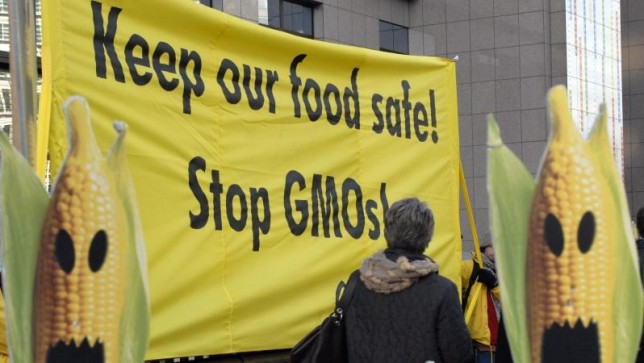Documents released to Corporate Europe Observatory (CEO) by the Dutch Ministry of Health reveal an industry-aligned collaboration between biotech corporations, researchers and regulators, that seeks to weaken UN biosafety discussions on risk assessment of GMOs and new genetic engineering techniques like Synthetic Biology.

With a new round of UN talks on the issue taking place in Montreal in the next two weeks, pro-industry bias in the forum puts public interests and environmental protection at risk, Corporate Europe Observatory warns in a new report.
The emails released by the Dutch authorities illustrate how industry, researchers and some regulators have been coordinating themselves ahead of UN negotiations of the Convention on Biological Diversity (CBD) and its Cartagena Protocol on Biosafety (CPB) to promote weakened oversight of GMOs and new genetic technologies. This comes at an important moment for the EU regulation of these new techniques, with an important European Court of Justice ruling expected for 25 July 2018.
Through dedicated email lists, the sharing of political intelligence, the mobilisation of student groups to participate in lobbying activities and side events at the UN negotiations, as well as attempts to influence the outcome of online consultations run by the CBD Secretariat, biotech lobby group the Public Research and Regulation Initiative (PRRI) has been pooling the efforts of the biotech industry and GMO-sympathetic governments and academics.
Key actors of the PRRI network include regulators from the Dutch, Brazilian, Honduran and Canadian delegations to the UN talks, some of whom hold prominent negotiating roles, as well as lobbyists from Bayer, Monsanto, Croplife International, the J Craig Venter Institute and representatives of corporate-backed organisations like the International Life Sciences Institute (ILSI) and the International Service for the Acquisition of Agri-biotech Applications (ISAAA).
Implicated in these activities is now also an official from the Health Ministry of the Netherlands who chaired EU talks on the endorsement of biosafety guidelines for GMOs in the context of the UN Convention on Biological Diversity, and discussed these closed-door talks within the lobby network run by PRRI.
Documents released by the Canadian authorities last year indicate the impact of PRRI’s activities. They reveal how several regulators, including the above-mentioned Dutch official and representatives from Canada, Brazil and the USA, took part in a covert meeting at the headquarters of the International Life Sciences Institute in Washington DC in February 2016. Their aim was to stop the endorsement of an important UN guidance document on the risk assessment and management of genetically modified organisms. At the following Conference of the Parties, important work on GM risk assessment was terminated under pressure from some of the same delegations participating in the PRRI groups.
PRRI’s attempts to also influence the outcome of online consultations by the CBD were reinforced in 2017 when the lobby firm Emerging Ag was paid 1.6 million dollars by the Gates Foundation to skew a consultation on Synthetic Biology, as shown by the Gene Drive Files. This has led to calls for the CBD Secretariat to put in place conflict of interest rules.
Corporate Europe Observatory’s researcher and campaigner Nina Holland said:
“We see that some negotiators – including from EU delegations – exchange and collaborate with biotech companies and lobby groups around crucial UN talks on the biosafety of GMOs and new genetic engineering techniques, when it is their job to regulate the activities of these actors.
The UN biosafety talks are extremely important to keep the use of these new techniques in check. Officials must not jeopardise regulation by strategising with those who hold a commercial stake in the development of these techniques. It is crunch time for rules on new GMOs in the EU right now, and the far-reaching impact of UN decisions means any industry-bias will trickle down into rules globally.”


















